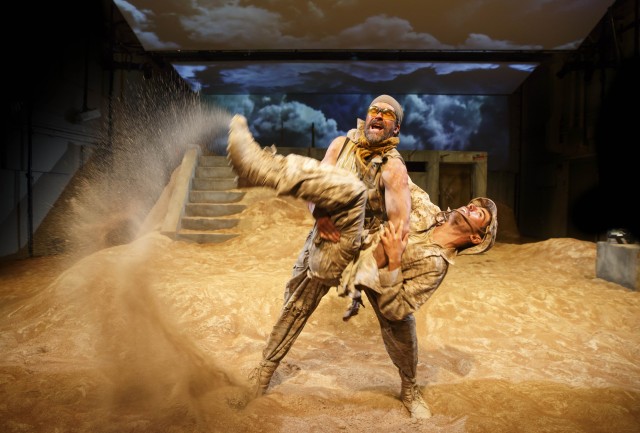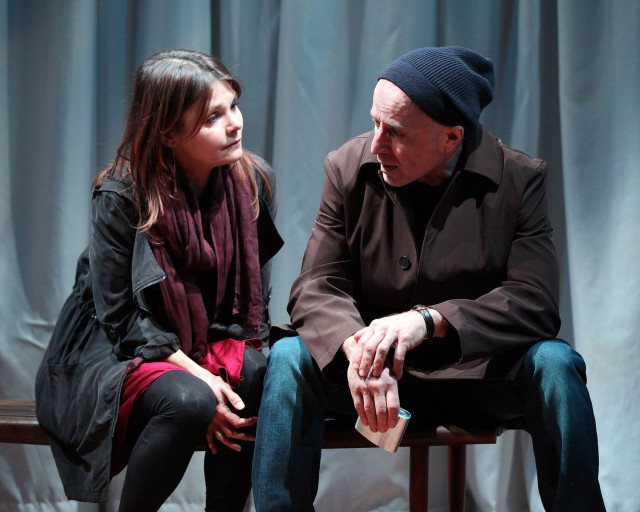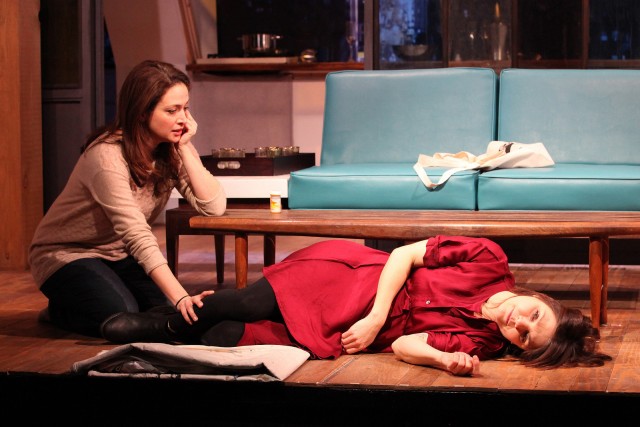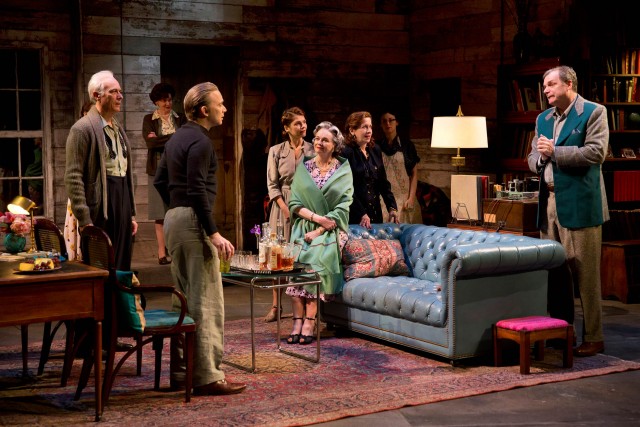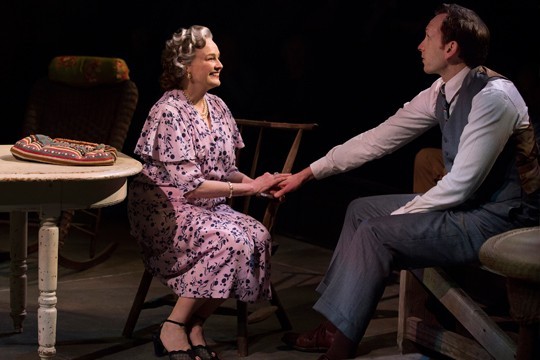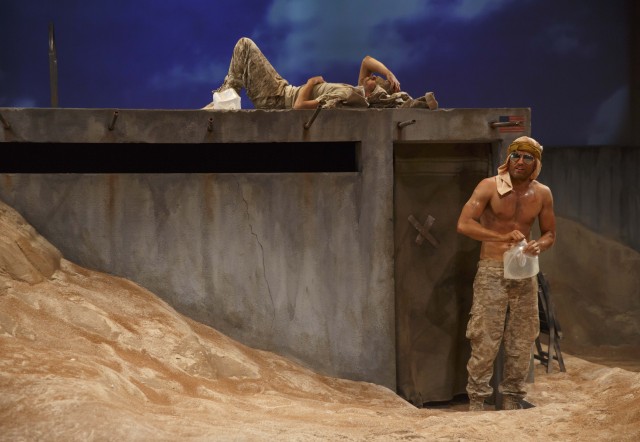
The maddening desperation of war hovers over Rattlestick production of AFGHANISTAN, ZIMBABWE, AMERICA, KUWAIT (photo © Joan Marcus)
The Gym at Judson
243 Thompson St. at Washington Square South
Through June 27, $18
866-811-4111
www.rattlestick.org
www.judson.org
Early on in Daniel Talbott’s Afghanistan, Zimbabwe, America, Kuwait, two American soldiers, Smith (Seth Numrich) and Leadem (Brian Miskell), are outside their desert bunker, burning up in the furious heat and talking about a bird that recently flew past them. “The f—in’ bitch thought we were going to die,” Smith says. “I waved at her. I waved. Like with both hands up. Gave her the f—in’ hang loose sign. The peace sign.” The time is the near future, and Smith and Leadem are in the middle of nowhere, fighting a war they don’t understand. They don’t even know what day it is, but they’re well aware that they’re running desperately short of food and water, with no way to call for help, and the vultures are circling. Their precarious existence becomes even more troublesome when a third soldier, Miller (Chris Stack), arrives, with no hope to offer them. “It’s like Chernobyl a week after the f—ing meltdown,” he says. “Just silence. Like f—ing New York, or DC, after China. It’s all gone.” Throughout the play, the soldiers are visited by various characters who could be ghosts, hallucinations, or memories as they discuss family and lovers, the past and the future, avoiding the central issue of the brutal effects of war. Leadem is particularly spooked by a Serbian woman (Jelena Stupljanin) who cries out in the night about being tortured and raped. “The only conversation we had was when I was begging them to kill me,” she explains. “That’s when they laughed. Their response was, ‘We don’t need you dead.’” But the soldiers are determined not to give up, not to die in this unstated location, which could be anywhere, for seemingly no reason at all.
Raul Abrego’s set is harshly realistic, a small concrete shelter surrounded by hills of sand that trickle toward the audience. Above and behind them, David Tennent’s projections depict bright blue skies and approaching clouds. Rattlestick literary manager Talbott (Slipping, Yosemite) also directs the play with a sure hand, making powerful use of John Zalewski’s sound design and Joel Moritz’s lighting to indicate changes of scenes, turning the theater pitch black, filling the space with loud feedback, then bringing the lights back up with the actors in different positions to signify the passage of time. The fine cast also includes Jimi Stanton as Leadem’s brother and Kathryn Erbe as his mother, adding to the mystery of what exactly is unfolding onstage. Afghanistan, Zimbabwe, America, Kuwait is a dark, bleak experience, an existential exploration of the horrors of war without overtly political content. The narrative occasionally gets confusing and repetitive; even at a mere ninety intermissionless minutes, it feels too long, but Talbott is not out to make the audience comfortable in their seats, instead intent on sharing aspects of the soldiers’ physical and psychological terror. It’s not a pleasant catharsis, and it’s not supposed to be. (The June 16 performance will be followed by a panel discussion with Greg Grandin, Morgan Jenness, and Michael Ratner, moderated by the Reverend Micah Bucey.)
